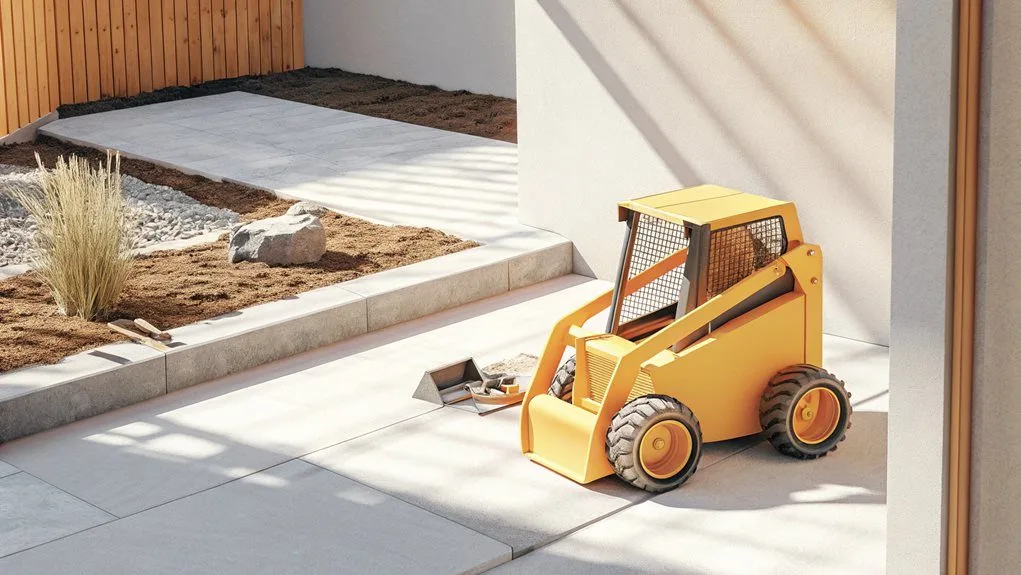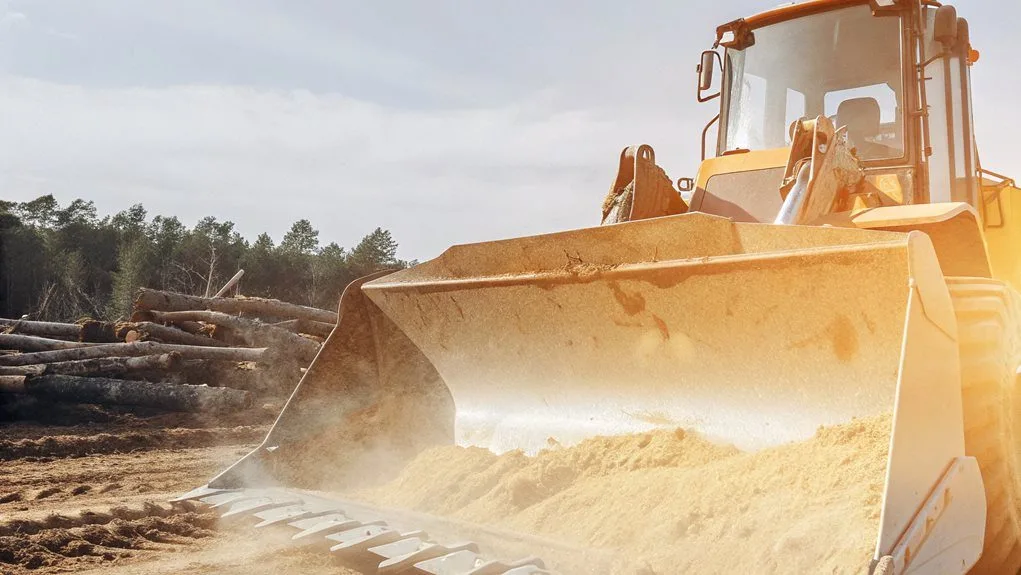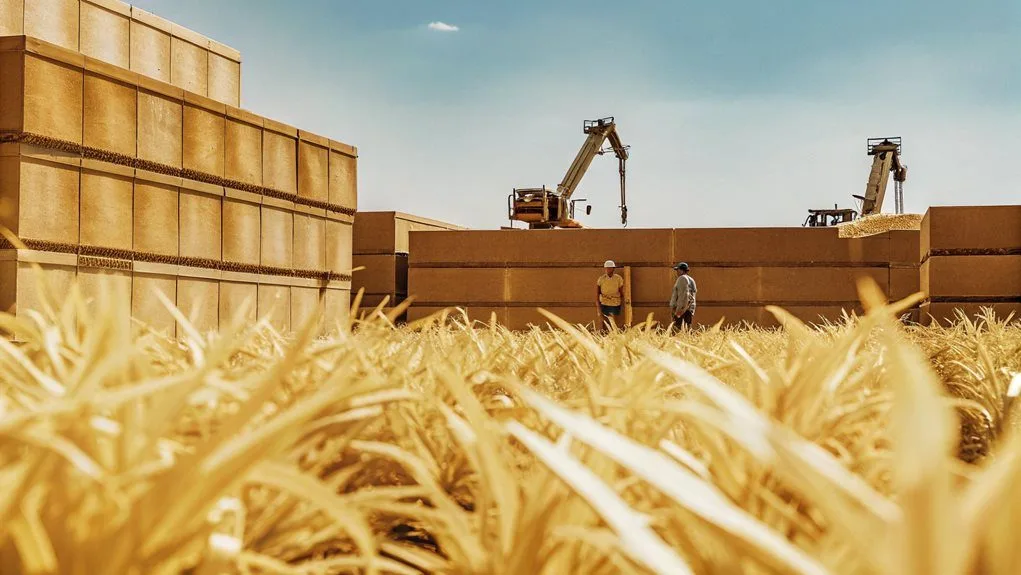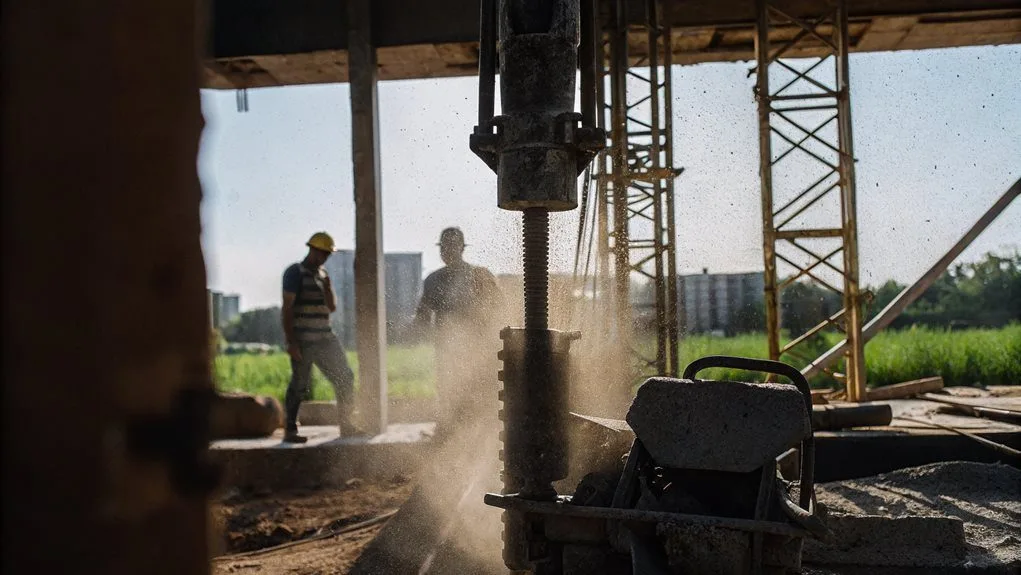Renting an excavator isn’t as straightforward as making a typical purchase. You’ll need to meet specific operator qualifications, including being at least 18 years old and possessing a valid driving licence. For certain specialised equipment like cranes, additional training and certification may be required before you’re permitted to operate the machinery.
Safety inspections are crucial and cannot be overlooked during the rental process. Failing to conduct proper safety checks could result in equipment damage and subsequent penalties or fines. It’s essential to understand all requirements and regulations before proceeding with your excavator rental to ensure compliance and safe operation.
Key Takeaways
- A valid driver’s license is mandatory to rent an excavator regardless of the equipment type.
- No specialized operator’s license is typically required for excavators/backhoes, but training is recommended.
- Operators must be at least 18 years old and possess a matric certificate or equivalent educational qualification.
- Physical fitness, good vision, and mechanical aptitude are necessary for effective operation of excavators.
- Local licensing regulations may vary, so it’s crucial to check compliance with provincial rules before renting.
Operator Qualifications for Renting Excavators
So, what does it actually take to rent an excavator?
First, you’ve got to be at least 18.
I mean, no one thinks a teenager should be operating heavy machinery, right?
Next, a matric certificate or equivalent is usually on the checklist.
A matric certificate or its equivalent is typically required on the list of must-haves.
Good luck finding a spot without physical strength and decent vision, too.
And let’s not forget a valid driver’s license—because operating a massive machine isn’t enough without it.
If you want to stand out, consider completing a training programme. According to industry standards, demonstrating mechanical aptitude can significantly improve your chances of securing a rental agreement. Additionally, having completed a recognized training program can showcase your knowledge of 360 Excavator Operator skills, which is highly valued in the industry.
Oh, and hands-on experience? Yeah, it’s rather essential. You wouldn’t trust just anyone to dig a hole, would you?
Licensing Requirements by Equipment Type
Regarding hiring heavy equipment, you might think it’s a free-for-all—you know, just hop in and start digging. But hold up; it’s not that simple.
If you want to operate excavators or backhoes, a fancy licence isn’t usually required. Phew! But guess what? Employers often prefer folks who’ve got safety and use training under their belts.
Forklifts? Yep, you’ll need mandatory training thanks to the Department of Employment and Labour requirements, as OSHA mandates certification for equipment that lifts specific weights.
And let’s not even start about cranes—those beauties require specialised certifications.
Got a PrDP (Professional Driving Permit)? That’s a must when you’re hauling heavy gear across provincial lines.
And don’t forget, regulations vary by province, so check your local rules. Trust me, you don’t want to get stuck in a compliance mess. It’s all about keeping it safe and legal!
Training and Certification Options
You might think you can just hop into an excavator and start operating it like a pro. But hold your horses! First, you’ve got to meet some basic requirements—like being at least 18 and having a matric certificate. You also need a valid driver’s licence.
And, let’s be honest, being in good shape and having decent vision isn’t just for fun; it’s a must!
After that, it’s time for training programmes. Think machine controls mixed with hands-on practice sessions—fun, right?
You’ll end with written exams and a shiny certification, showing the world you’re the real deal.
Sure, it’s a bit of work, but wouldn’t you rather be certified than just another wannabe in the dirt?
Safety Compliance and Responsibilities
When you’re ready to jump into that excavator and start digging like you’re the king of construction, you’d better get your safety compliance ducks in a row.
Seriously, you won’t want the Department of Employment and Labour knocking at your door with a fine because you missed a checklist.
Operators need to know their safety standards—armour up with your hard hats and gloves, folks!
Pre-rental equipment checks? Absolutely essential! Conducting thorough inspections ensures no damage occurred during transit, and nothing ruins a job faster than realising your excavator’s got issues.
And let’s not forget who’s responsible for maintenance during the rental. Compliance ensures equipment operates effectively in challenging environments—spoiler alert: it’s you.
Cost Considerations for Renting Excavators
Now that you’ve got your safety gear sorted and your excavation plans laid out, let’s talk about money—because let’s face it, what’s more exciting than digging into your wallet?
Renting an excavator isn’t exactly pocket change.
Daily costs range from R3,200 to R9,600, whilst a week can set you back R16,000 to R40,000.
Sure, you can score a mini for around R480 an hour, but if you’re aiming for something bigger? Hold onto your hard hat!
The bigger the excavator, the bigger the bill.
And don’t forget those extra costs—attachments and specialised tools can add up fast.
Conclusion
So, you’re all set to rent that shiny excavator, huh? Just remember, without the right operator’s license, you might as well be trying to dig a hole with a spoon. Sure, you could wing it and hope for the best, but do you really wanna explain to your neighbor why your backyard now resembles a small crater? Get the qualifications, play it safe, and keep your weekend projects from turning into a trip to the ER. Trust me; it’s worth it.






